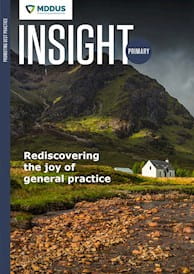When my column is due, displacement activity often calls. Sometimes I kid myself that it is thinking space. Mostly, it is just procrastination.
This month’s displacement activity has been exploring ChatGPT: an artificial intelligence chatbot which, depending on your perspective, is going to revolutionise knowledge or undermine academic standards and the creative arts. Blogs and articles aplenty bemoan and celebrate its functionality and potential, underestimating and overclaiming to make an argument.
My time on ChatGPT has been amusing rather than illuminating. I asked it to generate a clinical ethics column for a general readership. I received (swiftly) the following text.
|
It reads more like a curriculum or textbook table of contents than an engaging column. Ah, perhaps, I thought, the problem is user-error. Several years ago, I discovered that my nickname with our IT department was PICNIC. I asked why. It is an acronym: Problem in Chair Not in Computer. User-error is common when the user is me.
I did some more reading about how to use ChatGPT. Apparently, I should ask it to “write a column in the style of Deborah Bowman”. I did. I got much of the same material in an informal tone with a few rhetorical questions thrown in.
It then offered to tell me something about “Deborah Bowman and clinical ethics”. The bot schmoozed me in an ego-boosting narrative drawn from various publicly-available biographies ending with a grandiose statement about impact, reputation and influence. Flattery aside, it was pointless.
I shouldn’t be surprised. Ethics, and healthcare, are human and relational endeavours. I am regularly contacted by applicants to medical schools asking for help with “the ethics” elements of admissions. If I can, I invite them for coffee. I know they have intuitions, values, opinions and questions about medicine and care. They may have studied some ethics; they may not. It doesn’t matter.
What is important is tuning in to their own ethical assumptions, priorities, judgements and experiences. Those will be unique. They are grounded in families, experiences, narratives of home and society, beliefs and relationships. My role is to hold up a mirror to the person and encourage confidence and authenticity in expressing themselves about the ethical dimensions of care.
In education and training, I have run a lot of ‘ethics sessions’ on the widest range of subjects or problems. Occasionally, I am asked if I get bored of covering the same material. It is a curious question and one that assumes it is the curriculum that defines what happens.
If there are people, the sessions will be different, engaging and thought-provoking. Noticing what does and doesn’t prompt discussion, observing how difference is navigated within groups, listening to the words people use to describe their responses to a question or offer an argument, building on perspective, exploring intuition or offering a new lens on a problem are central to what happens. It is always specific to those people and grounded in relationships, openness and interaction.
Clinical ethical practice too is situated in relationships. Autonomy is given meaning via reciprocal listening, imagining, understanding and exploring. Consent becomes more than a legal concept when a clinician attends and responds to an individual. Colleagues’ support and wisdom make ethical judgement possible when the textbook is silent on a thorny question or, worse still, exhorts the reader to “justify your decision” if challenged.
Ethics live in the interpersonal. We understand the demands and variability that lie behind the term ‘duty of care’ when we meet real people. As we encounter those who remind us of someone we love, those with whom we struggle to connect, those who intimidate us, those who make us feel helpless and those who occupy our memories long after our relationship has ended, the deeply human business of ethical practice is revealed.
No bot can possibly compete.
This page was correct at the time of publication. Any guidance is intended as general guidance for members only. If you are a member and need specific advice relating to your own circumstances, please contact one of our advisers.
Read more from this issue of Insight Primary

Save this article
Save this article to a list of favourite articles which members can access in their account.
Save to library



